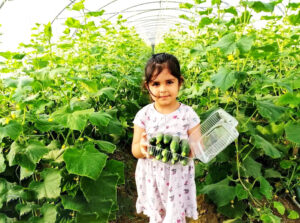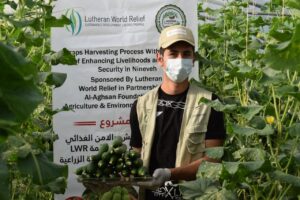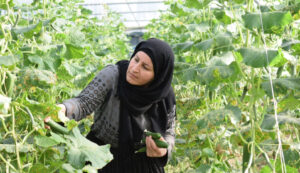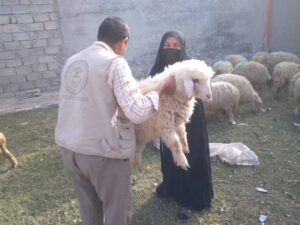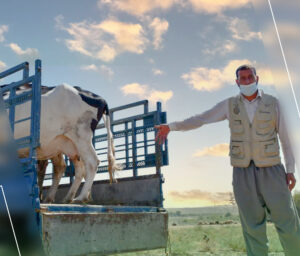DANIDA FLEX Project
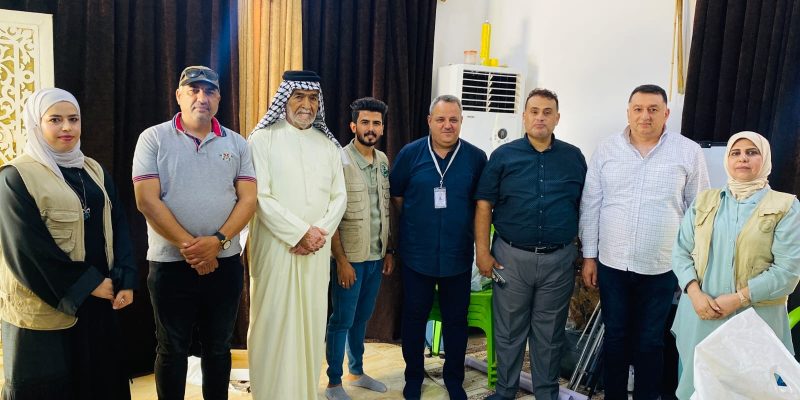
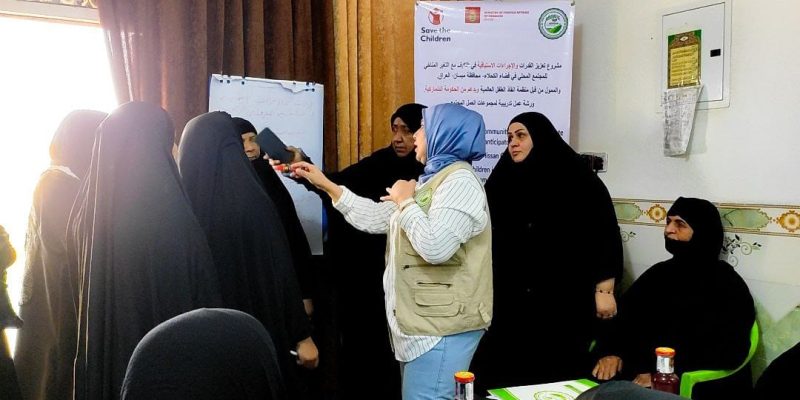
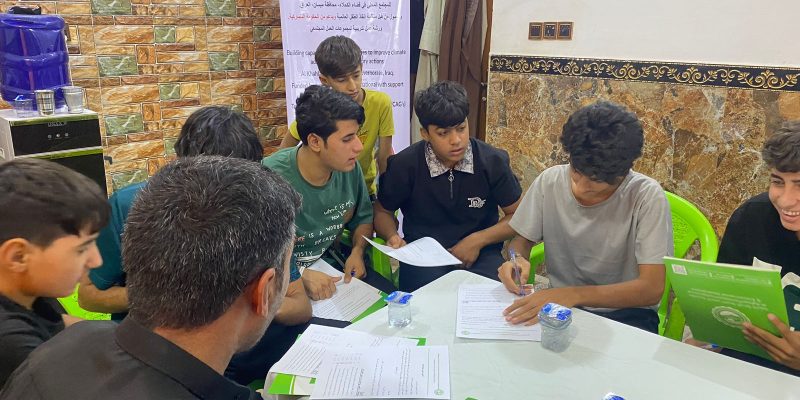
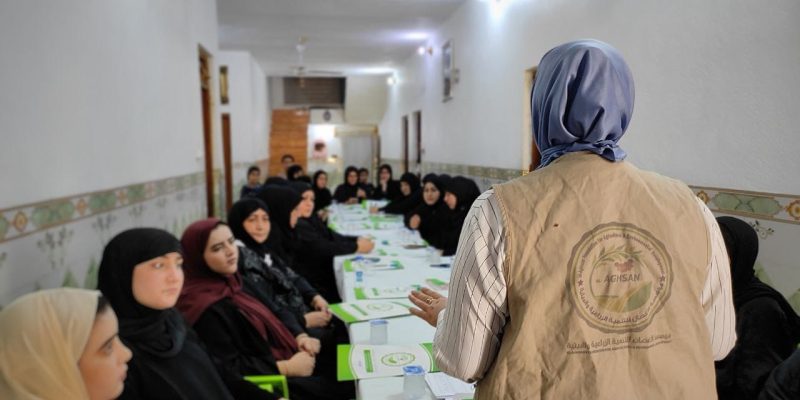
Details
Donor:
Danida
Donor Partner:
Save the Children
Duration:
8 Months
Start:
May 1, 2024
End:
Dec 30, 2024
Implemented areas:
Al-Kahla' district, Missan Governorate
Sector:
Climate Changes, Livelihood and Livestock
This project was funded by
Brief outline of the emergency/context update
In areas like Basra, Thi-Qar, and Missan, environmental degradation, climate-induced migration, economic insecurity, tribal conflict, and negative coping strategies like selling assets, child labour and child marriage are prevalent, according to IOM’s household profiling report (2022 “A Climate of Fragility”). SC and Al Aghsan’s rapid need assessment (RNA) in Missan governorate (Dec 2023) outlined the specific needs of most vulnerable groups in rural areas, including loss of livelihood, reduction in incomes and displacement. Main vulnerable groups refer to lack of education, socially excluded, female-headed, and rural households, particularly in the Al-Kahla district. A significant number of women express a sense of marginalisation both as citizens within society and by the state.
Relatively poor policy and institutional capacities related to disaster risk reduction (DRR) makes communities and people more prone to the effects of disasters. To date, there is an immense gap in policymaking and legislation around Anticipatory Action in the country despite efforts by national and international stakeholders to develop this framework, such as UNEP, UNDP, and WFP. With no functional and centralised Early Warning Systems (EWS), and the lack of information on upcoming risks and ways to mitigate them, communities find themselves unprepared to cope with associated impacts. According to assessment findings from Missan, public authorities in the governorate are not able to consolidate and systemise information about climate data, and local vulnerabilities. Authorities apply basic monitoring strategies, i.e. for agriculture, they conduct sight-observation and river channels flowmeters tracking to track the reduction in flow and then inform farmers of potential dry season, to promote mitigation actions.
Training workshop for Community Action groups
Training workshop for Community Action groups
Drought-driven conflicts, water scarcity, and climate change negatively impact agriculture, leading to crop losses and income decline. Tensions and conflict over natural resources tend to revolve around water due to a reduction in precipitation. Missan is one of the most water-stressed regions in the country, however, community water scarcity monitoring and dialogue and/or mediation platforms are lacking, contributing to further social and economic strain. Vulnerable populations, including women, children, people living with disabilities, and the elderly, suffer disproportionately especially when forced to move into urban areas because of climate-induced displacement.
Negative impacts on rural farming communities affect not only the cultivation plans but also the animal assets (i.e. buffalos in Iraq decreased from 15,000 to only 9,000 (Reuters, 2023)). Farmers are struggling to maintain production due to reduced levels of irrigation water, leading to crop losses and a decline in income (Al-Aghsan 2023).
This situation is further compounded by salinisation of agricultural lands (FAO 2023), which makes them less productive. The combined effects of climate change and water scarcity are leading to increased displacement within Missan and beyond (IOM 2023). Rural communities’ difficulties to sustain their livelihoods lead to forced migration in search of alternative sources of income and food security.
According to assessment findings, Al-Khair and Beni Hashim sub-districts record 20% of displacement of the total population in both locations, with projections to witness increment in displacements soon. The populations in both areas rely on farming, agriculture, and livestock as their main source of income. This displacement puts further strain on the already fragile social and economic systems. The climate crisis in Iraq is contributing to the fragility of the weakening social fabric. Access to limited water resources has exacerbated community and tribal tensions (Planetary Security Initiative, 2020), including armed conflict between tribal communities, and in many cases deaths and killing.
Children are disproportionately affected by the climate crisis, with children reporting feeling anxious, losing a year in education due to migration, and increased child labour, and girls interviewed in Basra reported increased domestic violence due to the father’s inability to make income. The social tension, and the gap in vertical trust between the government and the community is increasing, according to SC’s FGD with farmers in Missan. 100% of farmers have expressed their distrust in the government, both local and national, and how they deal with this crisis. Farmers recognise the need for a change. Women, children, people living with disability, and the elderly are disproportionately impacted by this crisis. Women report losing their freedom of movement and socialising when they are displaced to urban areas (SC 2023).
Children’s educational experiences are impacted either by climate anxiety and loss of livelihoods for their parents or by experiencing unprecedented heatwaves (UNICEF, 2023). SC and Al- Aghsan’s RNA sheds light on the needs in the community that revolve around mitigating and managing the risks of drought, crop failure, and loss of assets. This has exacerbated the negative impacts on children and youth and led to increases in child labour in the area. The inability to afford transportation to a nearby school captured by SC exemplifies the economic barriers preventing girls from continuing their education, perpetuating inequality (Barriers and Enablers to access to education for boys and girls – report) captured that girls are not continuing their education due to social norms and prioritization of boys education, with 10% of girls reporting this as their main challenge.
Main activities and outcomes
Estimated direct target is 240 Individuals (Women: 75, Men: 69, Boys: 48, Girls: 48), (This target will be revisited during project implementation and pending the community plans that will be developed, after evaluating their scope (i.e. HH level vs community level)
The project aims to strengthening anticipatory capacities to support climate resilience, via three main outcomes:
Outcome 1: Targeted communities (with specific focus on gender and disability inclusion) have increased adaptation and resilience to climate shocks through child and youth-led anticipatory action plans and engagement in EWS. The main activities that will contribute to this outcome include:
- Engagement of community groups, local authorities and other DRM actors to create inclusive community Community Action Groups (CAGs) consisting of women, men and youth, with focus on social inclusion and representing intersecting inequalities including people living with disabilities. Children perspectives will be collected during child-consultation and hearing sessions that will be brought up to the attention of the CAGs for consideration, this is also well aligned with generation hope, where many children voices are already collected. The main role of the community CAG will be to together with the communities identify and prioritise key risks the communities are facing, associated capacities and vulnerabilities, key actors and stakeholders and chart the intervention map. The community CAG will be informed by Social Behavioural Change Communication SBCC, to influence and sensitize their thinking concepts, and supported through training on DRR, AA and climate change to support community anticipatory capacities.
- Support of CAG to develop and/or strengthen child-sensitive systems for early warning on risks and potential impacts at a localized scale.
- Co-development of context-specific and inclusive Anticipatory Action Plans linked to the EWS, and priorization and implementation of selected early action activities (Community, HH and/or institutional level)
- Supporting development of structures for managing AA plans and community grants to implement actions and monitor progress (including implementation and monitoring plans), Community action plans will be developed in coordination and representation of local government, including; Mayor’s office, and representatives from farmers syndicate.
- Evidence based advocacy with duty bearers on efficiency and effectiveness of community involvement in AA planning and implementation.
This outcome supports opportunities for local actors and communities together with SC and Al-Aghsan to shift both power and practice, to support children and communities to strengthen climate resilience and reduce vulnerability to the impacts of climate change, through locally-led and child sensitive anticipatory action.
Outcome 2: National civil society have leadership roles in humanitarian/development coordination systems to support duty bearers uphold the rights of children and young women and men in the face of climate risk. The main activities the will contribute to this outcome include:
- Save the Children will evaluate Al-Aghsan’s capacity in child-led and informed advocacy, with a clear plan to build their capacities in this regard. This will be done by the ACCM department to ensure a systematic evaluation that will be added to their capacity strengthening plan. In addition, Al-Aghsan will be engaged in the post pilot evaluation of the Water Resource Management (WRM) plan that is being developed with the Ministry of Construction, Housing and Public Municipalities (MoCHPM)who are leading the DRR TF that SC is supporting
- Al-Aghsan will utilize the information from the project, child consultations, and CAG to advocate on the role of community engagement in high level coordination meetings and events (such as LCOY, Climate change taskforce, national events, and conferences)
Outcome 3: Evidencing impact of locally-led and child centred Anticipatory Action contributing to communities’ climate resilience and outcomes for children.
A learning framework for the project will be developed to contribute to important learnings on the processes for implementing better locally led risk informed adaptive programming and explore the potential for community climate resilience and better outcomes for children. Much evidence is yet to be generated on the effectiveness of locally led AA compared to standard humanitarian response. As such, there could be a comparative analysis between communities who participate in the locally led AA activities, and those who do not.
The evidence and learning generated will support the evidence base for a global guidance on community engagement, community based and local led participatory approaches to child centered anticipatory action. It will also inform SCDs future use of flexible funding to enhance local leadership and anticipatory action and provide needed inputs for scaling and replicating to other countries.
Activities
DANIDA FLEX 2024
Design thinking session for the Community Action group (CAG)
Child and youth-centred and locally led anticipatory action to build climate resilience in rural areas of Al-Kahla' district in Missan – Iraq.
READ MOREDANIDA FLEX 2024
Training workshop for Community Action groups (CAG’s)
Child and youth-centred and locally led anticipatory action to build climate resilience in rural areas of Al-Kahla' district in Missan – Iraq.
READ MOREDANIDA FLEX 2024
SELECTION OF THE TARGET VILLAGE WITHIN AL-KAHLA DISTRICT
Child and youth-centred and locally led anticipatory action to build climate resilience in rural areas of Al-Kahla' district in Missan – Iraq.
READ MORELast News

News
Climate Justice

Agricultural Entrepreneurship 2024
Second Day of the Innovation Camp for Agricultural Entrepreneurship at the University of Baghdad
Services
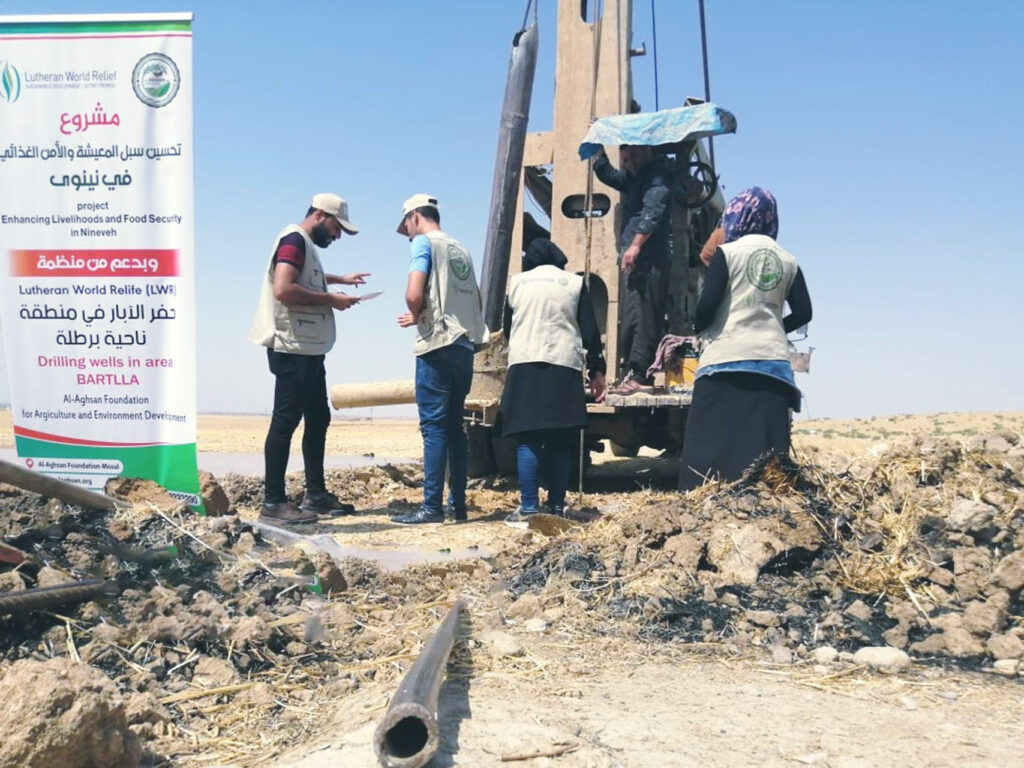
WHAT WE DO
Aghsan Foundation in Emergencies
Humanitarian action is central to Aghsan Foundation and realizing the rights of every child.
Aghsan
0 Comments
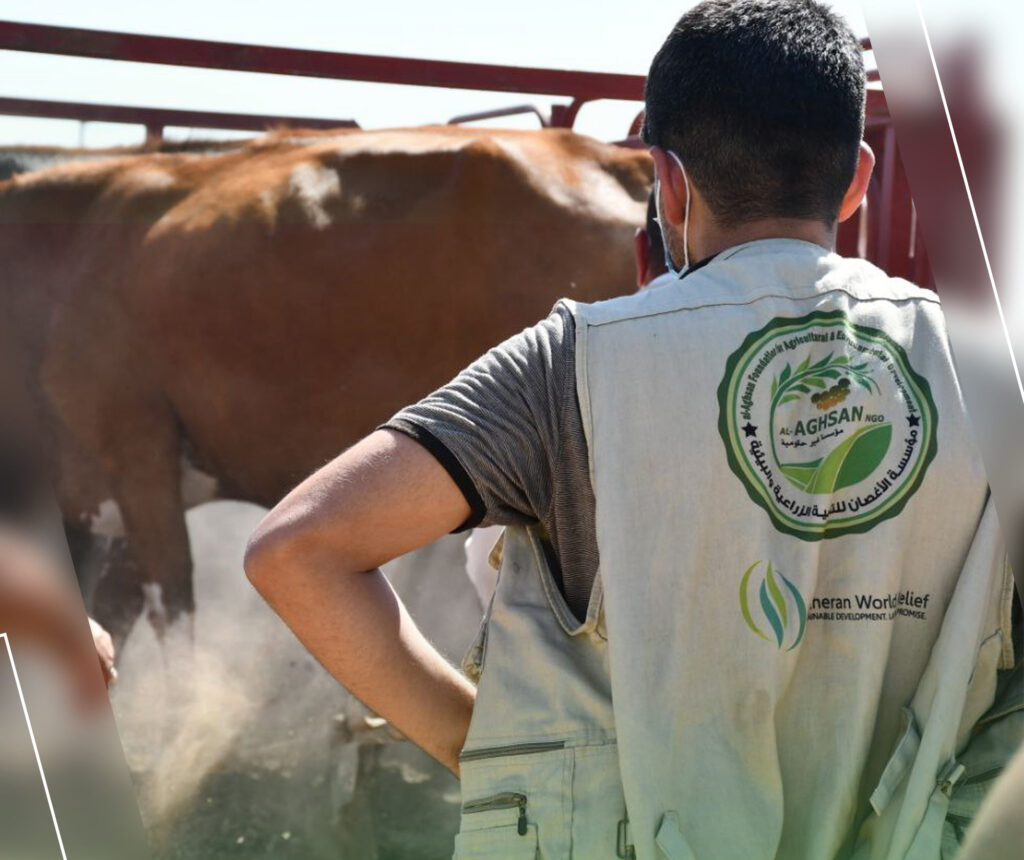
WHAT WE DO
Economic Recovery
The Economic Recovery sector is one of Aghsan Foundation’s five core sectors of intervention.
Aghsan
0 Comments
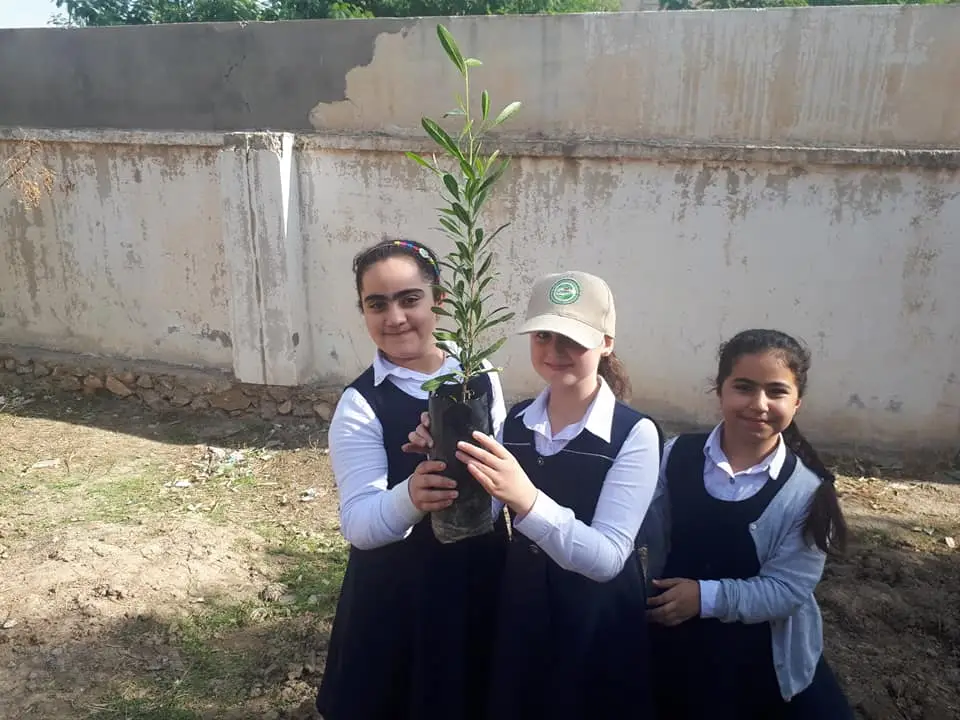
WHAT WE DO
Friends of the Environment
Aghsan Foundation commits to respond to the global climate crisis and environmental degradation
Aghsan
0 Comments
